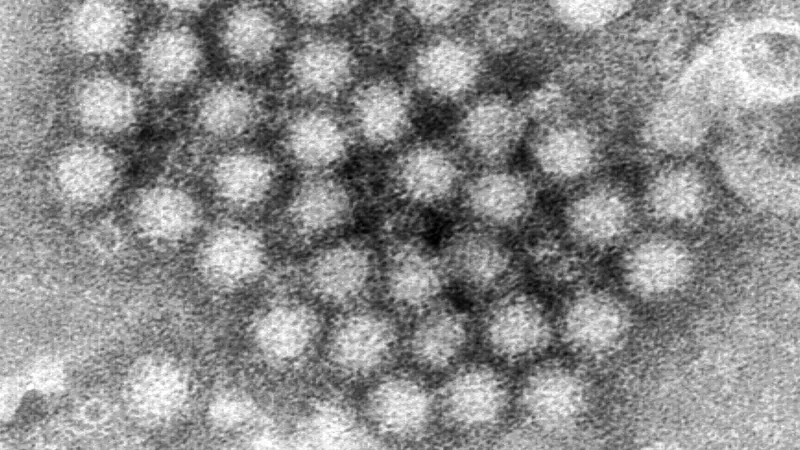
The Nasty Norovirus Is Making a Comeback: Here’s What You Need to Know!
2024-12-29
Author: Ming
This winter, the notorious norovirus is surging across the United States, bringing with it a wave of stomach ailments that health officials are closely monitoring. The latest data from the U.S. Centers for Disease Control and Prevention (CDC) reveals a staggering increase in outbreaks: 91 cases reported during the week of December 5, a marked jump from 69 the previous week. This surge is particularly concerning when we consider that in recent years, December typically averages only about 65 outbreaks in the same timeframe.
Norovirus, commonly referred to as the stomach flu (though not related to influenza), is infamous for causing sudden episodes of vomiting and diarrhea. With outbreaks frequently observed in crowded environments such as cruise ships, nursing homes, prisons, and schools, it’s crucial to remain vigilant, especially during the peak months from November to April.
Key Facts About Norovirus:
This virus is the primary cause of foodborne illness in the U.S., responsible for approximately 58% of annual cases, according to CDC statistics.
Norovirus is remarkably contagious; as few as 10 viral particles can trigger an infection. This means that close contact and shared food or utensils significantly increase transmission risk.
The CDC reports around 2,500 norovirus outbreaks in the U.S. annually, with symptoms typically showing up suddenly within 12 to 48 hours after exposure. Most individuals recover within one to three days, but the impact can be severe for those with weakened immune systems.
Each year, norovirus leads to an estimated 19-21 million illnesses, resulting in about 900 deaths and roughly 109,000 hospitalizations, with older adults particularly vulnerable. Young children are also at high risk, often resulting in emergency room visits due to dehydration, which can occur from the relentless vomiting and diarrhea the virus causes.
What to Watch For:
Symptoms include: - Nausea - Stomach pain - Body aches - Headache - Fever
Many people will recover without medication; instead, staying hydrated is crucial. Health professionals emphasize drinking water and electrolyte-rich beverages, while cautioning against caffeine and alcohol, which can worsen dehydration. Anyone experiencing signs of severe dehydration—such as decreased urination, dry mouth, dizziness, or, in children, unusual drowsiness or crying without tears—should seek medical attention promptly.
Prevention is Key:
During this peak season, rigorous hygiene is your best defense against norovirus. Wash your hands thoroughly with soap and warm water for at least 20 seconds, particularly before meals. Additionally, disinfecting surfaces regularly can minimize the virus's spread.
As the norovirus becomes increasingly prevalent this winter, staying informed and practicing good hygiene can help protect you and your loved ones. Don’t let the nasty norovirus ruin your holiday season—stay safe and healthy!





 Brasil (PT)
Brasil (PT)
 Canada (EN)
Canada (EN)
 Chile (ES)
Chile (ES)
 Česko (CS)
Česko (CS)
 대한민국 (KO)
대한민국 (KO)
 España (ES)
España (ES)
 France (FR)
France (FR)
 Hong Kong (EN)
Hong Kong (EN)
 Italia (IT)
Italia (IT)
 日本 (JA)
日本 (JA)
 Magyarország (HU)
Magyarország (HU)
 Norge (NO)
Norge (NO)
 Polska (PL)
Polska (PL)
 Schweiz (DE)
Schweiz (DE)
 Singapore (EN)
Singapore (EN)
 Sverige (SV)
Sverige (SV)
 Suomi (FI)
Suomi (FI)
 Türkiye (TR)
Türkiye (TR)
 الإمارات العربية المتحدة (AR)
الإمارات العربية المتحدة (AR)